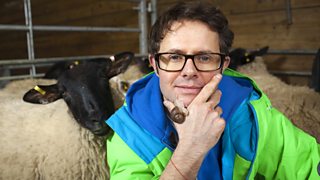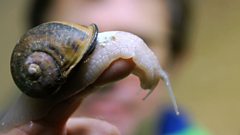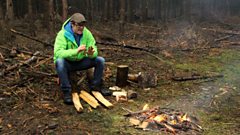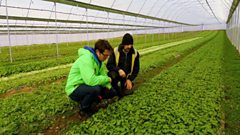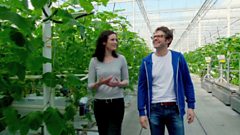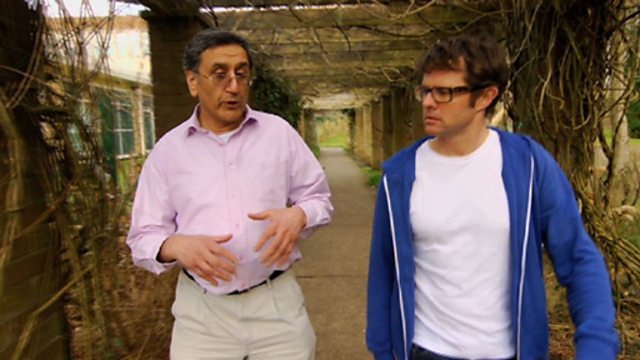
Maths behind natural pesticides that help biodiversity
Stefan Gates explores the maths of a discovery in a unique trial of a fungus pesticide.
The world is teeming with life but human activity is affecting biodiversity and one culprit is chemical pesticides. At Swansea University, Stefan Gates explores the maths involved in scientific discovery with Professor Tariq Butt and Dr Minshad Ansari. They show him a unique trial of a naturally occurring fungus that is an environmentally friendly alternative to chemicals and they use maths to prove it is effective.
Stefan learns how they prepare test solutions of the fungus by measuring small volumes, using averages and standard form. They conduct the trial on little larvae called Galleria and we see how Minshad collects the data on how many have been killed by the fungus and presents the results on the concentration required for 50% mortality.
Stefan accompanies Minshad on a hunt for new fungus strains and then heads off to Dorothy Stringer High School in Brighton. There he follows a bird walk with a group of students who are collecting data on bird populations to see if the biodiversity is changing. He discusses the results for the first four years of the project with two students. Finally he leaves them planting saplings to attract butterflies and promote biodiversity in their area.
Duration:
This clip is from
More clips from Key Stage 3
-
![]()
Calculating the most efficient use of land to produce food
Duration: 09:07
-
![]()
Wood as a renewable energy source
Duration: 09:23
More clips from Ecomaths
-
![]()
Using maths to understand food journeys—Primary
Duration: 09:22
-
![]()
Using maths to recycle rubbish—Primary
Duration: 09:44
-
![]()
Understanding how rainwater can be harvested using maths—Primary
Duration: 10:10
-
![]()
How to measure temperature and save energy—Primary
Duration: 09:54
